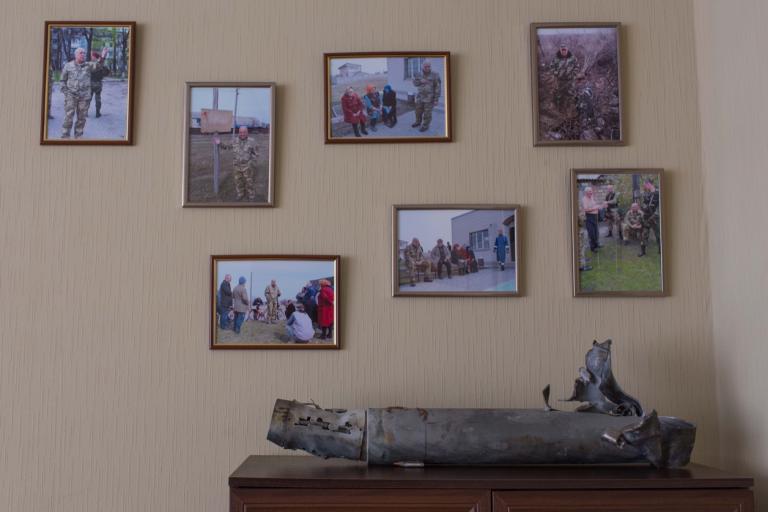The booming future of collaborative work environments
Part of our series on the future of Main Street

A free daily email with the biggest news stories of the day – and the best features from TheWeek.com
You are now subscribed
Your newsletter sign-up was successful
The concept of co-working has been around for centuries, since medieval artisans inhabited guild halls to share space, ideas, and tools. But high speed Wi-Fi, ergonomically designed desk chairs dotted around sleek communal tables, and machines dispensing piping hot, all-you-can-drink coffee? Those are all a bit newer.
So while the amenities, appearances, and even activities of co-working have changed, the models and motivations behind these collaborative work environments have remained very much the same: These are places to share resources and ideas. And they don't appear to be going out of style anytime soon. This is one area where the business' past is very much its future, too.
This is particularly true for small businesses that don't have a traditional brick-and-mortar location. Consider that a recent report from business services firm MBO Partners identified approximately 30 million independent workers in the U.S. — which includes freelancers, contractors, temporary workers, and small business owners with less than four employees — and their forecast is for 40 million by 2019. These individuals and small businesses don't typically require the traditional private office space of a larger company, nor do they have the upfront capital to even make such an investment financially feasible. According to a 2014 survey by Intuit, 64 percent of small business owners start with less than $10,000.
The Week
Escape your echo chamber. Get the facts behind the news, plus analysis from multiple perspectives.

Sign up for The Week's Free Newsletters
From our morning news briefing to a weekly Good News Newsletter, get the best of The Week delivered directly to your inbox.
From our morning news briefing to a weekly Good News Newsletter, get the best of The Week delivered directly to your inbox.
(More on the future of Main Street: The amazing promise of electronic payments)
Collaborative work environments can be a great solution to this problem. There are now more than 3,000 co-working spaces worldwide, with more than 160,000 members ponying up for their piece of a printer, a conference room, or even a laser cutter, according to reports from Deskmag and consultants Emergent Research. About a decade ago, those numbers were miniscule. But since picking up steam in 2006, they've nearly doubled each year. And in the next five years, Emergent predicts there will be 12,000 co-working spaces, with more than 1 million users. WeWork, which rents office space in nine cities (and counting), is banking on that. The New York-based company closed a $355 million round of funding in December, which put the four-year-old startup's value at a reported $5 billion.
Consider Bill Fienup, a Chicago-based inventor and entrepreneur who found the struggles of trying to run a business from his apartment went far beyond the awkwardness of bringing investors into his home. Simply trying to find a seat at a coffee shop when meeting with clients was a challenge too, he admits.
(More on the future of Main Street: How mom-and-pop businesses can thrive in the 21st century)
A free daily email with the biggest news stories of the day – and the best features from TheWeek.com
But the bigger issues arose in having access to the right professional equipment, and the option to install 3D printers and laser cutters in his living room wasn't really viable at all. So along with four other "makers," as they dubbed themselves, Fienup launched Catalyze Chicago in February of last year. It's a non-profit co-working space that goes far beyond cubicles and conference rooms, Wi-Fi and whiteboards.
The 8,000-square-foot space is like a grown-up version of Willy Wonka's factory, minus the Oompa Loompas. It is home to 31 companies, including members behind the Nova, an off-camera flash for the iPhone, and the BikeSpike, a GPS tracker to deter bike thefts and report crashes. Depending on access and amenities, memberships start at $75 per month, and does not require any long-term commitment or contract.
That alone is part of the appeal of these spaces, particularly for startups that Catalyze Chicago targets, says Steve King, partner at Emergent Research.
"People really like the idea that they don't have to sign a long-term lease," King said.
They also like the communal spirit fostered by these environments.
(More on the future of Main Street: Is America's economic future dependent on the 'gut feeling' of small business owners?)
"When you ask people why they went into a co-working facility, they talk about infrastructure first," King said. "But when you dig deeper, you find there is a social aspect. They interact on business issues, and there are people around to bounce ideas off of."
At Catalyze, that happens informally, 24 hours a day. "I didn't expect the value of community," Fienup said, "but these are other people sharing the same struggles."
Catalyze also hosts educational events and seminars designed to help its members manage their taxes or market a product through social media.
"These are skills that engineers don't have," Fienup said.
And rubbing elbows with other entrepreneurs and business owners creates an opportunity to make connections that can result in increased revenue. "One-third of people co-working somehow generate new business from the connections they make," King said. "Over time, it becomes one of the powerful reasons that they're there."
Sure, the amenities in these spaces add value, but the real appeal appears to be in the very foundation of co-working that, dare I say it, has been around since the Middle Ages and is now driving this trend.